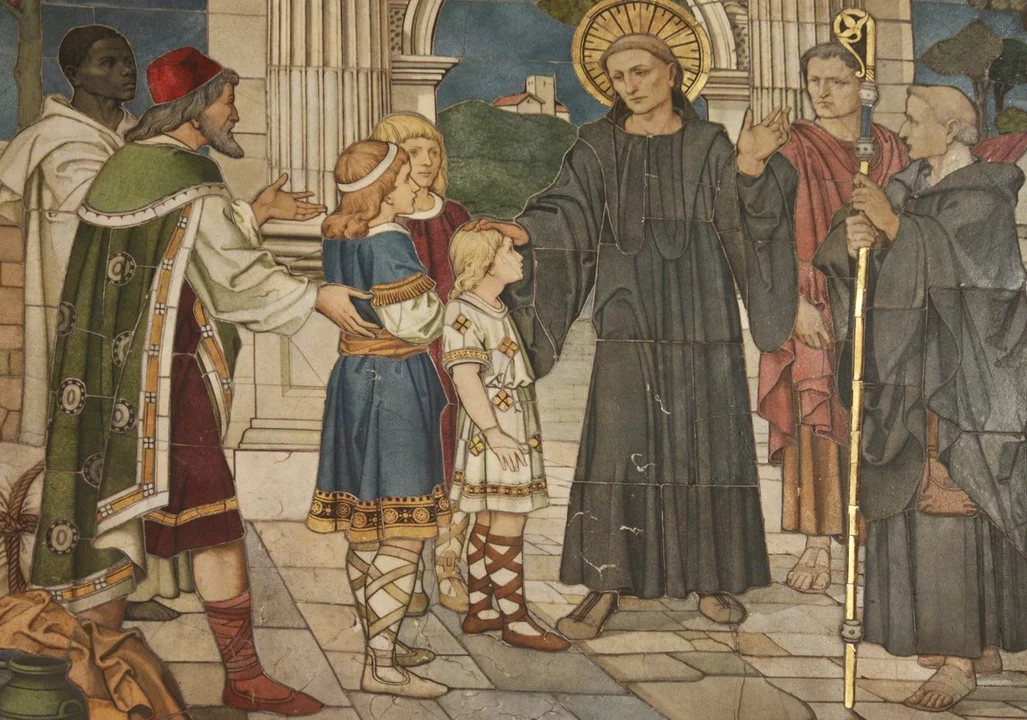Introduction: The Medieval European Perspective on Pagans
In this article, we will dive deep into how medieval Europeans viewed pagans, their beliefs, and their practices. From religious conflicts to cultural misunderstandings, the attitudes towards pagans varied across the continent. Let's explore the different aspects of this fascinating historical topic, and try to better understand the complexities of the medieval European mindset.
Christianity's Dominance and Paganism's Decline
During the Middle Ages, Christianity was the dominant religion in Europe, with the Catholic Church holding immense power and influence over society. As Christianity spread, paganism gradually declined, and those who continued to practice pagan beliefs and rituals found themselves marginalized and persecuted. The Church often portrayed pagans as barbaric and uncivilized, fostering a negative image of them among Christians.
Conversion Efforts and the Christianization of Europe
One of the primary goals of the Catholic Church during the Middle Ages was to convert pagans to Christianity. Missionaries were sent throughout Europe to spread the Christian faith and establish churches in pagan lands. This often led to conflicts and tensions between Christians and pagans, as the latter resisted the imposition of a foreign religion upon their way of life. However, over time, many pagans did convert, either willingly or under pressure from Christian rulers.
Violent Conversions and the Crusades
At times, the Christianization of Europe took a violent turn. The Crusades, for example, were a series of religious wars waged by European Christians against pagans, heretics, and even other Christian sects. These wars were often brutal and bloody, with pagans being forced to convert or face death. This harsh approach only furthered the divide between Christians and pagans, as it reinforced the idea that pagans were enemies of the Church.
Paganism as a Threat to Christian Society
Medieval Europeans often saw pagans as a threat to their Christian way of life. They believed that pagan practices, such as worshiping multiple gods and engaging in rituals deemed unholy by the Church, were dangerous and could bring about divine punishment. As a result, pagans were often persecuted and accused of witchcraft, leading to witch hunts and executions.
Stereotypes and Misunderstandings of Pagan Beliefs
There were many stereotypes and misunderstandings about pagans and their beliefs during the Middle Ages. Christians often believed that pagans worshiped the Devil, engaged in human sacrifices, and participated in other dark and sinister practices. These misconceptions only served to further vilify pagans in the eyes of the Christian majority, contributing to the discrimination they faced.
Encounters with Pagan Cultures in the Viking Age
During the Viking Age, Europeans had many encounters with pagan cultures, as the Norsemen traveled and settled throughout Europe. While these encounters often resulted in violence and conflict, they also led to cultural exchanges and the spread of new ideas. Some Europeans developed a fascination with the pagan beliefs and practices of the Vikings, while others continued to view them as barbaric and dangerous.
Preservation of Pagan Traditions in Folklore and Mythology
Despite the decline of paganism and the spread of Christianity, many pagan traditions, beliefs, and stories persisted in the form of folklore and mythology. These tales were passed down through generations and became an important part of European culture. In some cases, they even influenced Christian beliefs and practices, as the Church attempted to incorporate aspects of paganism to make the new faith more appealing to converts.
Conclusion: A Complex and Evolving Relationship
As we've seen, the relationship between medieval Europeans and pagans was complex and multifaceted. While there was certainly animosity and persecution, there were also moments of cultural exchange and appreciation. Understanding this history helps us to better comprehend the world of the Middle Ages and the diverse perspectives that existed during this time.
